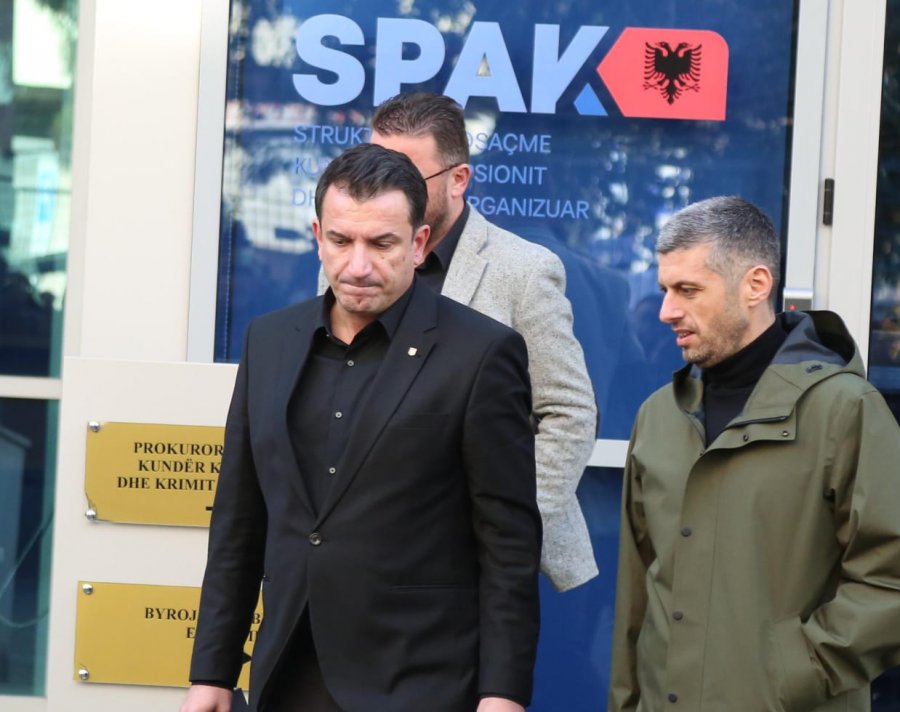SPAK’s investigation of Mayor of Tirana: an anonymous “accuser” and suspicion of political motives fuel controversy

By Mero Baze
The Mayor of Tirana, Erion Veliaj publicly acknowledged today that the latest “accuser” against him is an anonymous individual and SPAK prosecutor Olsi Dado has not even bothered to identify who this person is. After being lynched in public for months over the incinerator issue and the case of several former municipality directors accused of corruption, who are currently on trial, Veliaj is now being questioned about the activities of his wife who heads a cultural foundation and his brother, who manages the Albanian branch of an international advertising company, in an effort to uncover potential conflicts of interest.
While there is nothing wrong with investigating public figures, this situation raises serious questions.
The scope of the investigation: In the first two cases—regarding the incinerators and the allegedly corrupt directors—Veliaj is not a defendant, as these cases have already gone to trial. The relentless effort to dig back 20 years into his public life, going back to 2004 when he was leading the civil society organization MJAFT, appears to be politically motivated.
For instance, Veliaj has reportedly been questioned about who he traveled with on certain flights in 2004, 2011, and 2014, what credit cards he used, why did his mother-in-law purchase clothing that did not fit her size, or why did his late father-in-law buy and later sell a car for a higher price. Such details point to a deliberate attempt to politically lynch him, fueled by a political will that seems to have found support within SPAK.
The third investigation, a questionable accuser: While the cases of the incinerator and allegedly corrupt municipality directors are directly tied to Veliaj’s position as mayor, and thus legitimate areas of inquiry, the opening of a third case, based on anonymous accusations involving his wife, brother, late father-in-law, and living mother-in-law, casts doubt on the integrity of this investigation. This new avenue demands greater credibility as far as the identity of the accuser is concerned.
What is especially disturbing is that this so-called anonymous accuser appears to have had access to detailed aviation records: [he or she] managed to discover that back in 2004 Veliaj traveled on the same flight as a specific individual—this at a time when Albania’s TIMS system did not even exist. The information was not discovered by SPAK, but rather by this mysterious “anonymous” figure.
Political or investigative. There are two potential explanations: either SPAK is using informal methods to gather information and attributing it to an anonymous accuser—a practice reminiscent of communist era monstrosities—or there is a political agenda at play. The latter scenario would involve figures from the Democratic Party (DP) and even within the Socialist Party (SP) who are using this investigation to target Veliaj personally by examining his family life in the hope of uncovering something incriminating.
Veliaj’s public lynchers are not anonymous. They include members of the opposition, some of whom have effectively been “rented out” to attack him. These individuals are reportedly rewarded with business licenses, contracts for their families, or direct cash payments. They are not full-time opposition figures but rather mercenaries wearing the DP uniform. Many of them are known to attend the private events—weddings, funerals, or celebrations—of ministers in Edi Rama’s government. This makes the entire effort appear even more corrupt and coordinated with the recent threats issued by Sali Berisha against the same prosecutor, followed by what appears to be an effort of “cooperation” to boost his credibility.
Echoes of politically motivated trials: If Veliaj were implicated in legal violations related to the incinerators or corrupt directors, such findings would be more than justified, and no one would question the investigations. However, resorting to an anonymous accuser to dig into his personal life—investigating who he befriended, who he flew with, or his family’s spending habits—feels eerily similar to the politically motivated trials of the communist era. It is reminiscent of the trial of Nexhmije Hoxha, where trivial allegations like spending too much on coffee, were used to secure a conviction after failing to substantiate more serious accusations.
Such tactics harm SPAK’s credibility and reduce it to a tool for political witch hunts. Events from 20 years ago, before Veliaj became a public official, should not form the basis of investigations, no matter how public or private those actions were. Otherwise, anyone could become an “anonymous accuser,” forcing SPAK to pursue baseless investigations.
The line between public and private: Erion Veliaj deserves to be investigated and held accountable for his role as mayor, particularly for issues tied to his official responsibilities. However, this does not extend to the personal choices he made decades ago, motivated only by someone’s lack of empathy for his personal life. Such investigations risk strengthening Veliaj’s public standing by framing him as a victim of persecution, while simultaneously undermining trust in the justice process.
If SPAK persists with these questionable tactics, it risks discrediting itself and fueling speculation that the investigation is less about justice and more about political vendettas.


